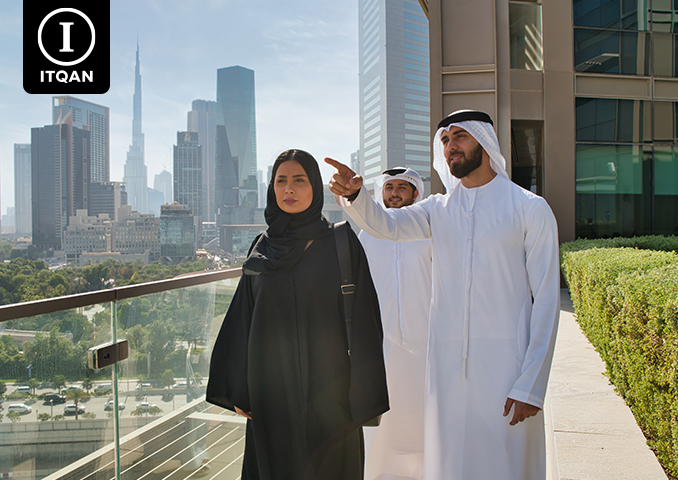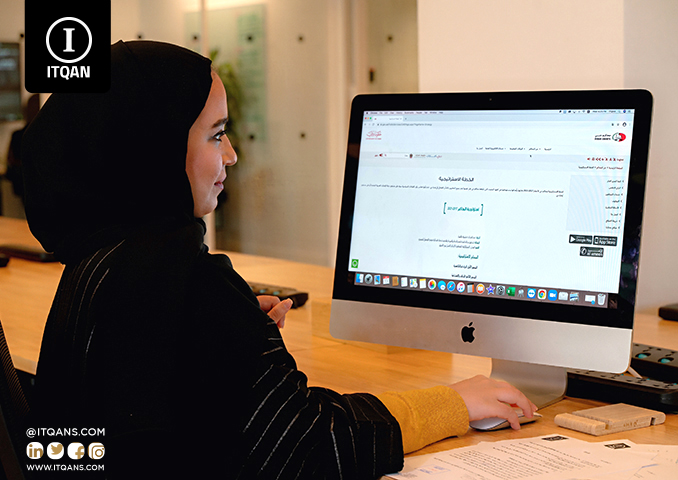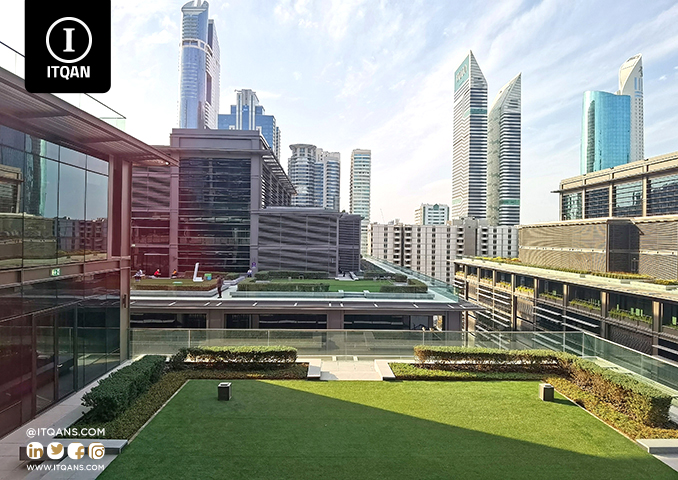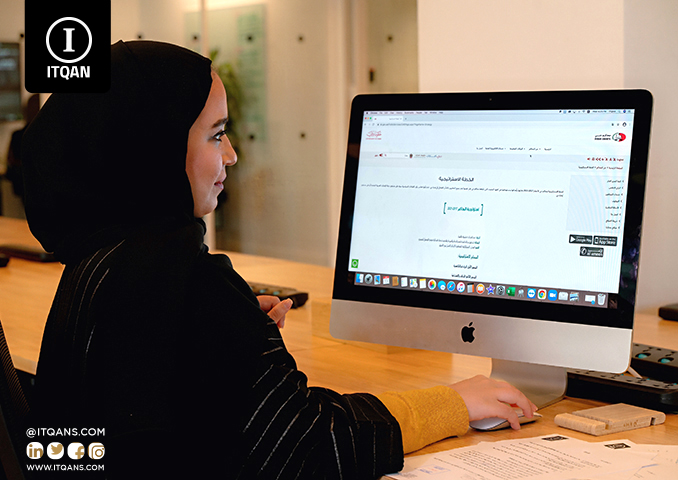When considering establishing a company in Dubai, free zones are an attractive option for many entrepreneurs and investors. These areas provide a range of unique incentives and benefits that make them an ideal environment for launching new projects. However, the Free Zone incorporation process requires a clear understanding of the laws and procedures governing it.
In this article, in cooperation with the experts of Itqan Legal Consulting Company, we will explore the basic details of establishing a company in the free zones in Dubai. We will cover the necessary steps, from choosing the appropriate legal structure to obtaining the required licenses and approvals. This will help us understand the opportunities and challenges surrounding establishing A company in the Free Zone in this distinguished regulatory environment.
Whether you are an ambitious entrepreneur or an investor looking for new opportunities, this article will provide you with the information necessary to plan and implement the process of establishing a company in the Free Zone in Dubai.

Establishing a company in the Free Zone
When establishing a company in the Dubai Free Zone, there are a number of basic steps that must be followed. In cooperation with the legal consulting experts at Itqan Company, we begin by determining the appropriate legal structure for the company, whether it is a limited liability company (LLC) or a private joint stock company.
After that, a commercial license must be obtained from the competent authority in the Free Zone, which determines the type of activity that the company will practice. This process also requires providing an office or headquarters for the company within the Free Zone and submitting a lease contract for it. In some cases, the company may need additional licenses depending on the nature of its activity, such as a health and safety license or an environmental protection license.
Furthermore, the company must register with the Federal Tax Authority for VAT purposes. Finally, if the company will bring in employees from abroad, residence permits must be obtained for them. Itqan Company provides integrated consulting services to assist entrepreneurs and investors in all these procedures.
What is the Free Zone in Dubai?
Free Zones in Dubai are special economic zones established in the Emirate of Dubai in the United Arab Emirates. These free zones are characterized by many advantages and incentives that make them an attractive environment for investment and business. Here is some key information about the Free Zone in Dubai:
- Advanced Infrastructure: Dubai’s free zones are characterized by high-quality infrastructure that includes advanced facilities for logistics, transportation, and communications.
- Tax exemptions: Companies operating in the Free Zone enjoy full tax exemptions on companies, capital gains, and customs duties.
- Fully foreign ownership: Foreign companies are allowed to establish in the Free Zone with 100% ownership without the need for an Emirati partner.
- Freedom to transfer capital: Companies in the Free Zone can transfer their capital and profits abroad without restrictions.
- Procedural simplicity: The establishment process in the Free Zone is characterized by ease of procedures compared to regular areas in Dubai.
- Sectoral diversity: The Free Zone includes diverse sectors such as trade, industry, services, technology, and creativity.
These unique advantages have made the Free Zone in Dubai a leading destination for investment and business in the region and the world.
Types of Free Zone in Dubai
In the Emirate of Dubai, there are many free zones that vary in their specializations and activities. Below are the most important types of free zones in Dubai:
Commercial free zones
- Jebel Ali Freeport (JAFZ)
- Dubai International Airport Free Zone
- Dubai World Trade Center Free Zone
- Dubai International Financial Center Free Zone
Industrial free zones
- Dubai Industrial City Free Zone
- Dubai Ceramic and Tiles Center Free Zone
- Dubai Electronics and Communications (DIC) Free Zone
Free zones for services and technology
- Dubai Internet Center (DIC) Free Zone
- Dubai Media Center (DCMC) Free Zone
- Dubai Internet City Free Zone (DICZ)
Specialized free zones
- Dubai Fashion Center Free Zone
- Dubai Tourism and Trade Center Free Zone
- Dubai Science and Technology Center Free Zone
Each free zone in Dubai has its own specialty and specific activities, allowing investors and companies to choose the most appropriate choice for the nature of their business and expansion plans.
Advantages of the Free Zone in Dubai
Free zones in Dubai provide many advantages and privileges to companies and investors. Here are some of the key advantages of free zones in Dubai:
- Full ownership by foreigners: Free zones in Dubai are considered an attractive investment for foreign investors, as they are allowed to fully own companies without the need for an Emirati citizen partner. This provides freedom and ease in organizing and managing business operations.
- Customs and tax facilities: Dubai free zones provide distinctive customs and tax facilities. Customs duties and customs duties on import and export are suspended and corporate tax is usually applied at a reduced or fully exempted rate for a specified period.
- Easy establishment procedures: Dubai free zones provide easy and simple establishment procedures. The registration, licensing, incorporation and issuance of business licenses are streamlined, helping to speed up the process of starting a business.
- Advanced Infrastructure: Dubai’s free zones have a modern and advanced infrastructure, including buildings, warehouses, logistics facilities, and logistics and communications facilities. This provides a suitable environment for companies to conduct their business efficiently and effectively.
- Easy access to global markets: Dubai is located in a strategic location that makes it a major commercial hub, with nearby regional and international markets easily accessible. This helps companies expand their operations and increase opportunities for trade and global expansion.
- Government support and support services: Dubai free zones provide strong government support and support services to companies. These services include legal and financial advice, logistics and shipping services, business guidance and advice, and banking and financial services facilities.
Documents and papers necessary to establish a company in Free Zone Dubai
To establish a company in one of the free zones in Dubai, there is a set of basic documents required, which differ slightly from one free zone to another. The following are the most important documents required in general:
Company incorporation documents
- Company incorporation application form.
- Company’s Articles of Association (Articles)
- Company registration certificate.
- A copy of the passport of shareholders/partners.
Administrative documents
- Commercial license application form.
- Passport copies of managers and key employees.
- Business plan for the company.
- A no-objection certificate from the competent authorities (if necessary).
Financial documents
- Proof of paid-up capital (bank/cash).
- Financial declaration signed by shareholders/partners.
- Proof of contributors/partners’ experience in the field.
Other documents
- Residence visa application form (if necessary)
- No objection certificate from other government agencies (if necessary)
- Any additional documents that may be required by the relevant free zone
You must ensure that all requirements and documents required for the specific free zone are met, which may vary slightly from one zone to another. All registration and licensing procedures must be completed with the competent authorities in the free zone.
What are the steps for establishing a company in the Free Zone?
There are main steps for establishing a company in one of the free zones in Dubai, which are as follows:
Choosing a free zone and business activity:
Choosing the appropriate free zone and business activity is one of the most important initial steps in establishing a company in a free zone in Dubai. You should do thorough research and analysis to make the perfect choice.
You should study the characteristics and features of the various free zones in Dubai, learn about their requirements and the types of commercial activities allowed in each zone. You must take into account factors such as infrastructure, services provided, tax incentives and exemptions, and ease of establishment and operation procedures.
Preparing the required documents and documents
When establishing a company in a free zone in Dubai, a set of important documents and documents must be prepared to obtain the necessary approvals and licenses.
Also, all personal and financial documents of the founders must be collected, including copies of passports, ID cards, and any documents proving the financial situation and previous experience. These documents are necessary to prove identity, ownership and experience.
The company’s articles of incorporation and articles of association must also be prepared. These legal documents define the ownership and management structure, goals and activities of the company. These documents should be carefully reviewed with a specialized lawyer to ensure their completeness and compliance with the requirements of the free zone.
Submitting an application to establish a company
After completing the preparation of all documents required to establish the company in the free zone, the official establishment steps begin.
An application to establish the company must also be submitted to the administration of the selected free zone. This request will include company details such as its name, activities, and administrative and financial structure. Copies of the articles of association and articles of association will also be provided.
All additional requirements and documents that may be requested by the free zone administration will also be completed. These may include proof of identity and experience of the founders, a detailed business plan, and necessary approvals from relevant government agencies.
Obtaining approvals and licenses
After completing the procedures for submitting the incorporation application and paying the required fees, it is the turn to obtain official approvals and licenses to operate the company in the free zone.
Approval must be obtained from the competent authorities to establish the company. This includes the approval of the free zone administration in addition to any other government agencies related to the type of company activity. These approvals are necessary to obtain a business license.
Opening the office and starting commercial activity
After obtaining the necessary approvals and licenses, it is the turn to open the office and start the company’s commercial activity in the free zone.
The first step is to rent an office or suitable space in the chosen free zone. The office must be equipped with the basic infrastructure and services necessary to carry out the activity, such as electricity, the Internet, etc. It should also be taken into account that the location is appropriate and appropriate to the nature of the company’s business.
After that, the office is prepared and the necessary employees are hired to carry out the company’s work. Care must be taken to employ qualified personnel with appropriate experience in the field. The company’s organizational structure and the distribution of tasks and responsibilities are also determined.
Conditions for establishing a company in the Free Zone
There are a set of conditions for establishing a company in the free zones that our company, which is Itqan Company, which is one of the best leading companies in this field, explains to you. The conditions are represented in the following points:
Approvals and licenses
The founders must obtain approval from the competent authority in the free zone to establish the company. This approval represents the first and essential step to start the establishment procedures. The authorities in the free zone study the application for incorporation, and verify that the necessary requirements and conditions are met, before approving the establishment of the company.
capital
Determining the minimum capital required to establish a company is crucial in the incorporation process. This minimum varies depending on the type of activity and sector in which the company will operate.
For companies operating in some sectors, higher capital may be required compared to other sectors. For example, companies operating in heavy industry or finance may need more capital than those operating in trade or services. Therefore, founders must ensure that they meet the minimum requirements for the sector in which the company will operate.
Property and nationality
The founders must clearly define the ownership structure of the company. This includes determining the contribution percentages for each partner or shareholder, and ensuring that they are compatible with legal requirements. In some cases, certain ownership percentages may be required for regulatory or credit facility purposes. The nationality of shareholders is also an important factor. In some sectors or activities, restrictions may be imposed on the percentage of foreign ownership or certain nationalities of shareholders may be required. Therefore, founders should check the specific citizenship requirements of the sector in which the company will operate.
Location and space
Choosing the appropriate location and space for the activity is a decisive factor when establishing a company, especially if the company operates within a free zone. The founders must also determine the appropriate location for the company’s activity. This involves considering factors such as infrastructure, proximity to customers and suppliers, and access to roads, airports or ports. You must also ensure that the site is authorized within the free zone. The space required for operations and facilities must also be determined. The company’s current and future needs should be considered, including office space, warehouses, and production workshops. This will ensure that there is enough room for the company’s future growth.
Staff and management
Employee management and company organizational structure are crucial when establishing a company within a free zone. Founders must define the company’s organizational structure and key functions. This includes defining roles and responsibilities for each function, such as senior and supervisory management, operations, human resources, finance, and marketing. This will ensure clarity of roles and responsibilities and enhance organizational efficiency. In addition, the company must employ qualified and experienced personnel to fill key positions. This includes searching for the right talent and conducting careful recruitment and selection processes. The necessary labor permits must also be obtained from the Free Zone Authority to ensure compliance with applicable laws and regulations.
Privileges and exemptions
Benefiting from the tax and customs privileges and exemptions available in free zones is one of the most important advantages that these zones offer to companies established there. Companies operating in free zones can also benefit from exemptions such as:
- Exemption from taxes on commercial and industrial profits
- Exemption from customs duties on raw materials and imported goods
- Exemption from value added tax on goods and services
- In addition, free zones allow companies to re-export goods without paying any customs duties.
In conclusion of this article on establishing companies in free zones , it can be said that the opportunities available in these regions represent an attractive option for companies wishing to expand and grow regionally and globally.
Free zones provide a distinguished operating environment through tax and customs privileges and exemptions, advanced infrastructure, and integrated logistics services. These advantages help companies improve the efficiency of their operations and increase their competitiveness in regional and global markets.
However, success in free zones requires a deep understanding of the legal and regulatory requirements and procedures governing the operation of these zones. Here comes the role of Itqan Company as a reliable partner to provide consultations and integrated services for establishing and managing companies in free zones.
In cooperation with Itqan, companies can optimally benefit from the advantages of free zones, achieve their expansion goals and sustainable growth in target markets.
Frequently asked questions about establishing a company in the Free Zone
What are the main advantages of establishing in free zones?
Tax and customs exemptions, including exemption from income tax and customs duties The possibility of re-exporting goods without paying fees Advanced infrastructure and integrated logistics services Ease and ease of establishment and operation procedures
What are the basic requirements for establishing a company in the free zone?
Obtaining licenses to practice the activity from the Free Zone Authority. Adhering to the laws and regulations of establishing and operating in the free zone. Providing the minimum required capital. Obtaining approvals from the competent authorities according to the nature of the activity.
How long does the establishment process take in the free zone?
The duration varies according to the requirements and procedures in each free zone, but on average it takes from 4 to 8 weeks.
Can foreign companies establish in free zones?
Yes, free zones welcome investments from foreign companies and provide them with the same benefits and exemptions available to local companies.
Itqan provides integrated consulting services to assist companies in establishing procedures and obtaining the necessary licenses.

















